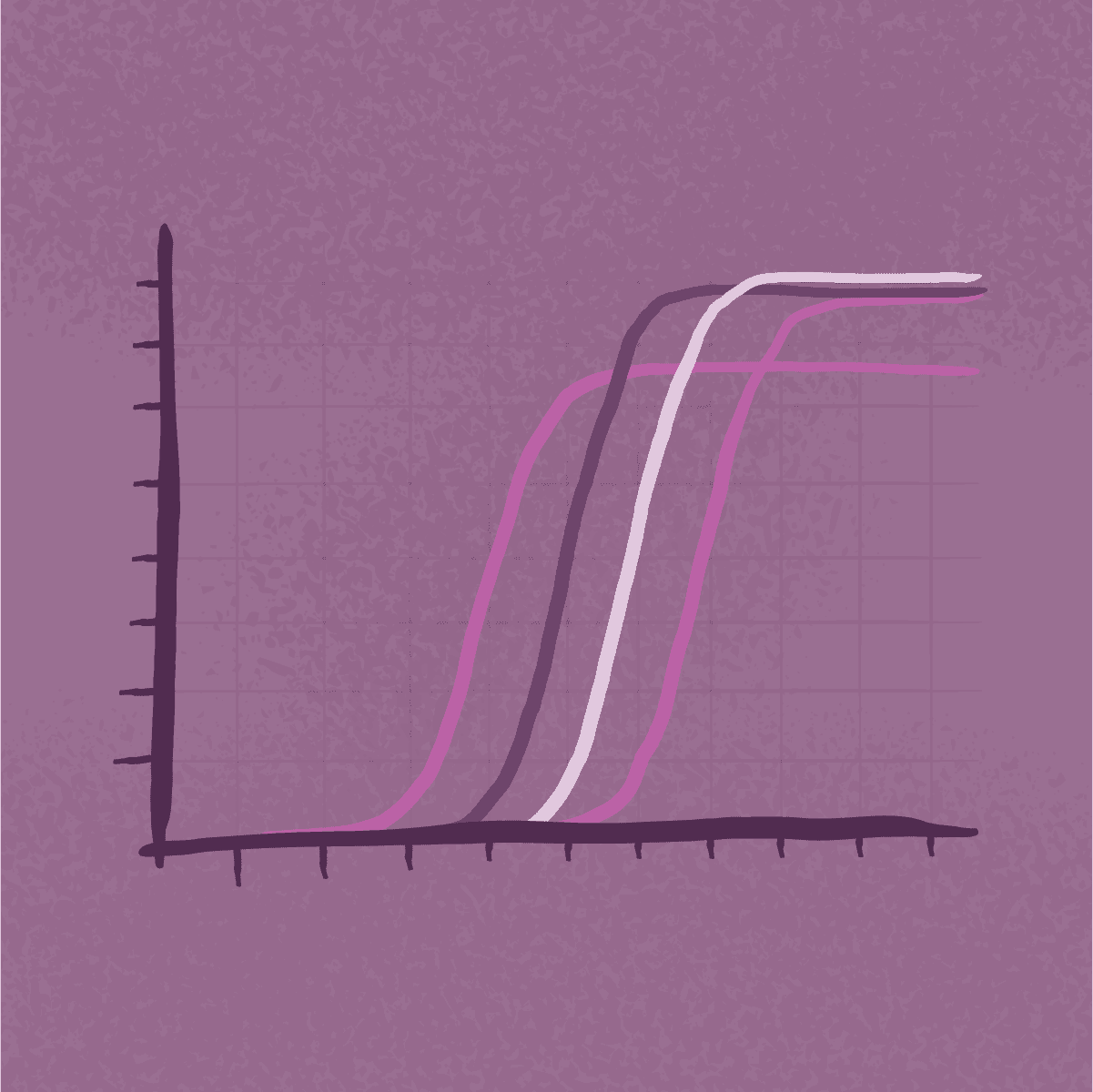PCR
From endpoint PCR to quantitative real-time PCR and RT-PCR, we offer a complete portfolio of high-quality products to meet your amplification needs. Endpoint and real-time PCR products feature GoTaq® (Taq) DNA polymerase in convenient master mixes, kits and flexible enzyme formulations for basic PCR, hot-start PCR, long-range PCR, qPCR and RT-qPCR.
RT-PCR and real-time RT-qPCR product lines include GoTaq® DNA polymerase and GoScript™ reverse transcriptase, providing robust and reliable reverse transcription and PCR performance for difficult templates and in the presence of PCR inhibitors.
All PCR systems, enzymes and reagents come with our PCR performance guarantee. If you are not completely satisfied with any Promega PCR product, we will send a replacement or refund your account.
PCR Product Groups
Taq Polymerase and Endpoint PCR
Includes high-performance GoTaq® DNA Polymerase, PCR buffers and master mixes for endpoint PCR, hot-start PCR and long-range PCR.
PCR Cloning
Vector systems and reagents for easy cloning and expression of PCR products.
qPCR and RT-qPCR
Dye-based and probe-based assays for real-time qPCR or RT-qPCR
RT-PCR
Kits, master mixes and reverse transcriptases for one-step and two-step RT-PCR.
Top PCR Products for Your Lab
Need a product modified?
Contact us to discuss custom and bulk formulations, custom packaging and format options for PCR products.

PCR Basics
PCR, the polymerase chain reaction, is a core technique that has revolutionized molecular biology. In PCR, a DNA molecule is targeted and copied multiple times, allowing exponential amplification of the target DNA sequence.
Key components of a PCR amplification reaction are a thermostable DNA polymerase, Deoxynucleotide Triphosphates (dNTPs), reaction buffer and magnesium, two oligonucleotide primers and a thermal cycler that allows controlled cycling of the reaction temperature through multiple rounds of DNA denaturation, primer binding and DNA extension.
Reverse-transcription PCR (RT-PCR) allows interrogation of RNA sequences. In RT-PCR, an RNA target is first reverse transcribed to DNA prior to amplification by PCR.
Real-time qPCR provides more sensitive, quantitative analysis of a sample. In qPCR and RT-qPCR, labeled reaction products are detected in real time as the amplification reaction proceeds. qPCR-based methods are a standard means for quantifying target DNA sequences or monitoring gene expression.
Variations between thermostable DNA polymerases are used to optimize reactions for specific purposes. For example, in hot-start PCR, the DNA polymerase does not become active until the denaturation temperature is reached. This minimizes the formation of non-specific amplification products and allows the convenience of room-temperature reaction setup. One of the most efficient methods for hot-start reactions can be achieved using antibodies to block Taq polymerase activity.
Long-range PCR can be achieved using a mixture of thermostable polymerases, like Taq DNA polymerase and a proofreading enzymes lacking the 3´-5´ exonuclease activity, which excises incorrectly incorporated bases in the synthesized DNA strand. This allows greater accuracy and generation of longer target sequences. High-fidelity thermostable polymerases such as Pfu have a low error rate and also possess 3´ to 5´ exonuclease activity.



